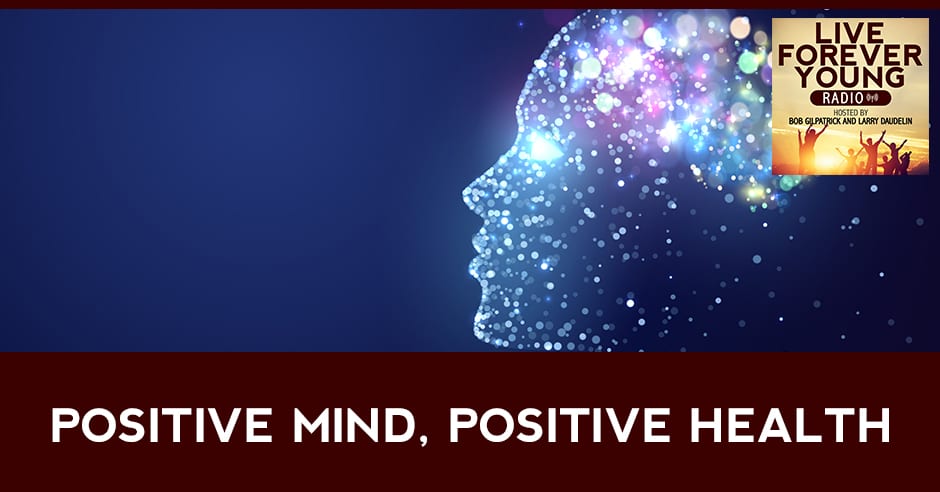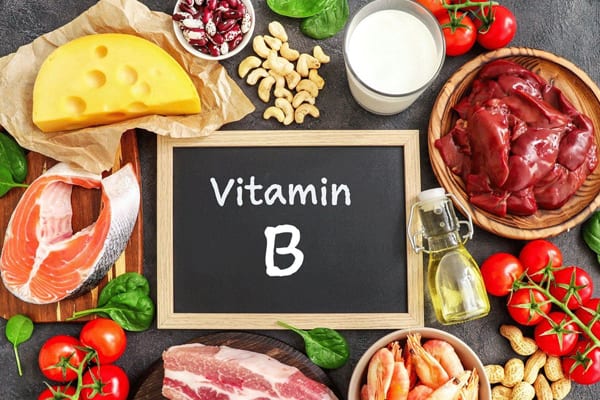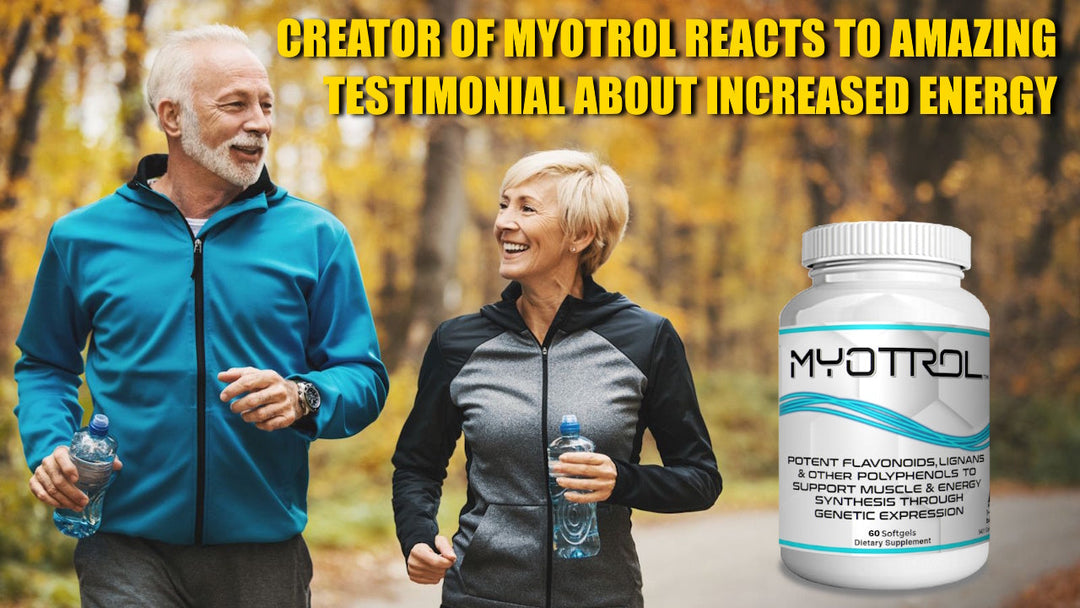Positive Mind, Positive Health

Statistics show that one in five Americans will be impacted by depression or a mental illness during their lifetime. Having a positive mind to knock out negative feelings can drastically improve your health!
In this episode, Bob Gilpatrick and Larry Daudelin identify and discuss the different types of depression, what causes depression, and what you can do to get out of depression and start living a life of gratitude. Poor nutrition, traumatic life events, and inflammation are all possible sources of depression.
Bob and Larry suggest that taking A, C, E, and B vitamins, using devices like Inner Balance and Fisher Wallace Stimulator, and doing positivity boosting methods like emotional freedom technique and grocery ministry can all help lead you out of it. Tune in to know more!
---
Watch the podcast here:
Listen to the podcast here:
[fusebox_track_player url="https://feeds.podetize.com/ep/w4sqf2OW5/media" title="Positive Mind, Positive Health " social_linkedin="true" social_pinterest="true" social_email="true" ]
Positive Mind, Positive Health
Understanding and Overcoming Depression
Rollie, how are you doing? I'm doing good, Bob. We're here in St. Petersburg, Florida. We're going to talk first a little bit about what depression is.
Depression can be many different things but in general, it’s feelings that people have of feeling down, like things are not okay, going their way and a lack of optimism. It can go all the way to major depression or even catatonic depression, where people get so depressed that they can't get out of bed.
People that are in a situation like that need to be under the care of a qualified health practitioner or a psychiatrist, psychologist, etc. We're not going to be talking about that type of depression. We're going to be talking about situational depression, which is another type and a little bit about bipolar disorder, which is depression coupled with anxiety.
I know a lot of people have that. I see a lot of commercials for medications for that particular one. We're going to talk about Seasonal Affective Disorder also called SAD, which is the way people tend to feel during the wintertime when there's not as much sunlight. There are many different causes of depression that people need to be aware of.
One of the main ones is poor nutrition and research shows this over and over again that if people are low in Vitamin D, the sunshine vitamin, which is part of Seasonal Affective Disorder, B vitamins, and omega-3s that those are potential causes of depression. Another cause is inflammation.
If people have general inflammation, their brains going to be a little bit inflamed. This can be caused by many things like toxicity, but usually it's because your body's creating inflammation from a poor diet, particularly too much sugar and high-glycemic-index carbohydrates. Those create a lot of what we call free radicals.
Another of the causes is life events. Here we are at the beginning of 2021. There were a lot of life events in 2020 that were unexpected and weren't pleasant. There were enough life events in 2021 for a lifetime. For some people, it was. Life events don't just have to be things like what happened in 2020, a death in the family, loss of a job or your boyfriend or girlfriend and you are heartbroken. It’s events like that. One in particular that hits people hard is the loss of a pet, also.
There's also the whole issue of your microbiome, your gut. You have good and bad bacteria in your gut. If you don't have enough of the good bacteria, you can be prone to depression. Those bacteria are creating metabolites that are involved in the creation of your neurotransmitters, such as serotonin. Without enough serotonin, you're going to feel depressed. Sometimes, it's a matter of your microbiome.
A lot of people take medications that are serotonin releasers. It results in a higher uptake of serotonin. A lot of people don't realize that there's such a connection between your gut and your brain because of the manufacturer of neurotransmitters.
The neurotransmitters and precursors travel along the neuronal pathway. What you're saying is that if your gut microbiome is off, neurotransmitters are created, then those neurotransmitters are going to be tainted. They get up here and they're not functioning.
You don't make enough, so you don't have enough. That's even worse. I'd rather get something than nothing. We'll talk about neurotransmission and how to make sure you get enough into the receptor cells. Another one, Rollie is poor sleep. People that constantly do not get enough sleep tend towards depression. Another big one is an illness. If somebody becomes ill and they are feeling bad, they can't get out of bed. They're in the hospital. It's going to lead to depression.
Illness also leads to isolation. You're not out and about around a lot of people. Isolation causes loneliness. Loneliness leads to depression. Another thing that leads to depression very frequently is if someone's had a stroke. You want to pay particularly close attention to that issue if you or one of your friends or loved ones had a stroke.
The other thing that can cause depression is dementia. If someone has vascular dementia or Alzheimer's disease, they can get very depressed. The reverse also, if someone has depression, it can mimic dementia. When I used to be an administrator in nursing homes, people would come from the hospital with dementia and that was their diagnosis.
Our attending physicians would treat them for depression and their dementia would disappear. They didn't have true dementia. It was dementia that came on because of the depression that was easily cured. Those are the main things that are going to cause issues like this. Another big one is inside your brain, you do have these neurotransmitters that need to be in balance so you feel good.
Serotonin being one of the main ones. You have to be able to make enough serotonin but you also have to have the receptors because serotonin is going to sit in a cell in your brain. It's going to shoot a little BB of serotonin across to a receptor.
That receptor is where the magic happens, where the metabolic pathways occur that make you feel good. You want to have enough supply and receptors. We’ll talk about how you can get more receptors. Not only that but for the little BB of serotonin to make its way across to the receptor, it's riding on a synapse.
There's any electrical potential to that synapse. If that electrical potential gets too low, the BB’s won't make it across. We'll talk about how you can also increase that electrical potential. In terms of what to do to start with is looking at your nutrition. You want first to know some things about your level of nutrition. With blood tests, you can check your Vitamin D3 level.
We always talk about D3. That is one of the most, if not the most important ones. Check that first. A lot of times, if people start increasing the amount of D3 they're taking or begin taking it for the first time, their depression gets better right away. The other thing is you want to have your blood sugar checked, not only your fasting blood sugar but your A1C. You also want to check your C-Reactive Protein.
As we said, inflammation can cause depression. C-Reactive Protein or CRP is your measure of inflammation. You can endeavor to get it down by using nutritional products. The ones you want to use are Vitamin D3 and also Omega-3s. Omega-3 fatty acids are another good thing to pay attention to. Most people consume way too many Omega-6 fatty acids. Those are the bad ones.
They come in processed foods. To have omega-3 from things like wild-caught Northern salmon or taking supplements of krill oil or fish oil is good for balancing out that ratio of Omega-3 to Omega-6. I've heard that Omega-3s are good for brain health.
B vitamins too are very important for mental health and they keep you from being depressed. If you get your test back and your C-Reactive Protein is high, if it's three, that's in the middle. You're probably not going to be depressed from that, but it will lead to other problems down the road.
If you're CRP is above three, you want to endeavor to get it down as fast as you can. You need compounds that are antioxidants. The ACE vitamins, A, C and E, selenium, zinc, SOD, trimethylglycine, all of those things are in the Boomers Forever Young products, the Boost and Gladiator Barley.
Oftentimes we hear people say, when they start taking these products, that they were taking them for their physical health, but also, they're starting to feel better. They’re getting more energy. They feel like getting out and about exercising. Exercise is a good antidote for depression.
It is. The more you move, you have less focus on the depression. You get your mind moving and back into action. When you exercise, you secrete endorphins. Endogenous morphine makes you feel good.
When I used to do cross country, I didn't quite realize the chemical process, but about halfway through the run, you get this rush. You like to zero in on what's right in front of you. You don't stop to get there. It's weird, but it's a true phenomenon.
It’s the same thing from playing basketball. Any sport, anything, moving. Those are some of the nutritional aspects that people can take advantage of. We certainly can help people with that at Boomers Forever Young. A couple of other great things, Rollie, which we've practiced together and you've seen the benefits of is the emotional freedom technique.
If someone is feeling depressed, say for example, because their cat passed away. This happened to me many years ago. It was a very sad day. For the next few days, we were depressed. That's natural and normal. If it lingers on and I have a friend where that's happening, where it's lingering on. It's been months. People need to know how to do the emotional freedom technique. They can do an exercise where you tap on your fingertips on the side of your nail.
You could repeat a phrase that says something like this, “Even though up until now, I thought that I had to continue to feel depressed because of the death of my cat, I completely love and accept myself. I'm so grateful now that I realize it's okay to begin to get over it, to transform my grief into simple sadness, and begin to feel a complete peace.” Cross your hands across your heart and take a deep breath in, let your chin drop down while you're taking the breath out and sit quietly.
It’s a very effective technique for helping with depression or whatever the cause is, whether it was from an illness or stroke or any type of a life event. Are you feeling relaxed, Rollie? I got a little quiet there because it does. It works every time.
You're very relaxed, calm and serene. It’s a very good antidote. A couple of things that are effective for helping with depression, one is a device called Inner Balance that comes from the HeartMath company. Put the clip onto your ear. You open up an app on your cell phone. There's a transponder that communicates information about your body to the app on your cell phone, through Bluetooth.
Essentially what it is when you open up the app, there's a mandala a little bigger than the size of a quarter. It's colorful. It will shrink and expand according to the setting you give it. It’s usually about 5 seconds out, 5 seconds in. You sync your breath to it. You keep your mind focused on what you're grateful for. There are little boxes around the outside of the circular mandala. They begin to fill in with colors. They're filling in based on how you're doing.
This is very effective because they say that the average American is of the belief that things are not okay 95% of the time, this leads to depression. The opposite of things are not okay is I'm lingering in gratitude. When you linger in gratitude, things are okay because you're focusing on what is okay.
As you do this, you send them a signal from your frontal cortex of your brain to your heart muscle. Your heart begins to beat differently. Your heart is constantly sending signals to your brain. In this particular case, it’s sending the signal to the amygdala. The amygdala is a seat in your brain that determines if there's an emergency, if things are okay, not okay.
It signals your frontal cortex, which then signals your heart. You're creating a change by using your conscious focus on gratitude. You changing the way your heartbeats, which is changing the signal going to your amygdala. As you practice, you can be of the belief that things are not okay maybe only 90% of the time, then 80%,70%, 60%. As you keep going and practicing over the weeks, you can become a person who believes that things are okay almost all the time, unless there's a real emergency or a life event.
This is an excellent device to help create pattern interrupts and people to train their minds to focus on what they're grateful for. It's like a mind video game or a gratitude video game. Once you get to a certain level, you can up your challenge. If you start out on Level 1, then you move to Level 2. They give you a review of every session. To help you try to get your variable pattern right, they'll show you a readout on a chart.
If you do well, they give you awards to unlock an achievement on Xbox or whatever. It's gamified. It makes it something that is entertaining and you don't realize how much it helps until you put it into practice and this helps you get it into practice. The last device we're going to talk about is called a Fisher Wallace Stimulator.

It’s been around for years and not a lot of people know about these things. I can’t believe that. More people need to know about the Fisher Wallace Stimulator was originally called the LISS Stimulator and invented by Dr. Saul Liss, who is a friend of mine. Chip Fisher purchased the business from the estate of Saul Liss when he passed away a number of years ago and kept the company alive. It's like a tens machine.
It's got pads with wires coming on to them that you wet the pads, put them onto your temple skirt with a headband, and turn on the electrical power on the device. You only turn the power on very slowly until you feel a tingling on your skin and then you turn it back. You don't feel anything. The treatment is below the threshold.
It's not like an electric shock. It's a tiny little electrical current, but the type of wave and the type of pulsation, the on-off of it, was all discovered and patented by Dr. Liss. Knowing exactly the pulses that helped to raise the electrical potential at the synopsis, but not only that, inside the receptor so that you have this metabolic pathway of serotonin going into the receptor and creating action in the receptor. There are many thousands of success stories about people using the Fisher Wallace Stimulator.
It is FDA-approved for treating depression, anxiety and insomnia. Why wouldn't we try that before pills? The more that people learn about it and the more doctors that learn about it. You need a doctor's order for that and you can work with the Fisher Wallace company to secure that. They're very inexpensive.
They have a guarantee after 30 days. If it's not working for you, you can send them back. I've never seen it not work for someone to help their depression. As they say, “It works really well, but only always.” Rollie, I want to talk about the whole aspect of people who are lonely because we're going to do a whole show just on loneliness.
There were so many people and way more than you might think. A lot of people that live alone or they're lonely even living with someone else because of poor communication. For people that are lonely, it's very important that you reach out and try to socialize in some way because loneliness actually through a pathway leads to inflammation.
The very first and the best thing to do is to reach out to your church, your synagogue, etc. and say, “I want to become a member.” If you're already a member or a parishioner, you want to use that as a way to meet new people and be around people. It's not for Sunday or Saturday, there are all kinds of groups all throughout the week. You make new friends and you have to get out of the house and do that.
Make friends with someone at church that will come and pick you up if you don't have a way to get there or the church van, whatever it is. That's the easiest way to do it and to keep your mind focused on socializing. I remember a friend of mine whose mom was in her 90s and she lived by herself. Her form of socializing was to go to the grocery store every day. She didn't even always buy something, but they served coffee at the grocery store.
She would go from her car and grab the closest grocery store shopping cart she could find. It helped her walk. She’d come into the grocery store. She'd go get a cup of coffee. She’d take a sip, put it in the top of everything. She would go around the store. Everybody in the store knew her by name. All the people that worked there knew who she was. Lots of the people that were shopping, knew who she was. She would spend a whole 1 or 2 hours in the grocery store socializing.
You're not only out there meeting people, but you're walking around, getting activity and seeing something different. Whoever thought the grocery store could turn into such a great place to socialize?
The two times that I was there with her, she had a gigantic smile on her face the entire time she was there. It was going on for so long, I had to go out and wait in the car. I hate going to the grocery store to shop, let alone spend another four hours in there.
That leads us to another thing that people can do, which is grocery store ministry. Grocery store ministry is a situation especially during times where we still have to wear masks, there's a lot of places you can't go, but you can go to the grocery store. When you're going to shop for food or even if you're not, go to the grocery store and focus your mind on the good things you're going to do for other people.
Famous man once said, “When times are tough, keep your mind focused on the good things you're going to do for other people.” It's easy at the grocery store, even though they can't see you smile. You can smile with your eyes and you can say things, “Your baby's beautiful. I like your shirt. Isn’t it a great day? I see you're getting some organic cabbage.”
What are you going to do with that? What are you going to make with that? A lot of times there are people in the grocery stores who are there to shop, but they're feeling depressed or lonely. It doesn't take much a smile, a look in your eye, a kind word to make other people feel better. That can be your way out of your own depression. What are you doing? You're focusing on what you're grateful for the ability to recognize this beautiful child, this amazing person that God created and how beautiful their eyes are.
What you've done, you've gone from lingering in the gratitude to actively creating gratitude, which is where you want to be all the time. It’s the gratitude of recognition. I'm grateful I'm able to recognize these wonderful things about all these people and to God for giving us so many beautiful people on this planet. What it leads to is you might even say, “I'm grateful to be alive.” Feeling grateful to be alive is the ultimate. Like, “Thanks to God for giving me this life. I'm enjoying myself here on earth.
I'm grateful to be alive.” Very special neurochemistry happens when you're grateful to be alive. It's almost impossible to feel depressed when you're grateful to be alive. Those are the basic things to know about depression. You want to be under the care of your physician if you are having major issues with depression.
If it's mild and it's Seasonal Affective Disorder, for example, take more Vitamin D, spend as much time getting sunlight as you can. Here's a good thing related to sunlight to know. When the sun first comes up in the morning, there is a combination of this blue and yellow light that's occurring together. It turns out that combination of light is very good for setting your biorhythms and your mood.
There's something also magical about the combination of colors with sunsets. People will say it's good to get sunlight and it's good to avoid blue light in the nighttime so you can go to sleep. It turns out there's a lot more to it than that. If at all possible, you want to spend some time with the sunrise or shortly after sunrise, up to an hour after sunrise, that type of light is still lingering. It’s the same with sunset.
The sun goes down and an hour after sunset, you still have those same phenomena of light. Some people with Seasonal Affective Disorder pay attention to that. Lastly, you can always also get a light. There are mechanical lights designed for helping people with SAD that you can sit in front of and receive a mimic of the light from the sun. It will help to reset your brain So the Seasonal Affective Disorder will go away. My mom had Seasonal Affective Disorder.
They didn't have lights back then, but she would sit in a bay window where the sun came across the sky on the South and trying to get sunlight. She would feel depressed during the winter and that's how I ended up in Florida because my mom wanted to come to Florida in January and February to get some sun and to feel better.
One of my sisters went to school at Eckerd College back then it was Florida Presbyterian. In the '60s, we would come to visit and have a vacation for my mom. I got to come from Upstate New York and the cold snowy weather. When I turned 50, I was like, "I'm moving to Florida." It might even be that the phenomenon of Seasonal Affective Disorder is why I'm living here.

Something good can come from it. That's better than nothing. I have to say with all these new techniques, with the tapping, we know about this Fisher Wallace, which has been around forever, but people haven't discovered it. Take a look at that. We'll have some information about it on LiveForeverYoungRadio.com.
It'll be involved with this show. When you see it, go ahead and take a look. We'll also have the information for the Inner Balance. The new thing about this grocery store ministry.
That's kind of a cool concept that you came up with. I heard about it from my girlfriend, Nancy. Nancy is the creator of the grocery store ministry. That's good stuff especially in this time when it's getting cold and you can't get out, find a way to get and be social.
Rollie, thanks for being here with us. Bob, thank you. I’m very glad to be here. Thanks, everyone for reading. We'll see you on the next show.






Leave a comment